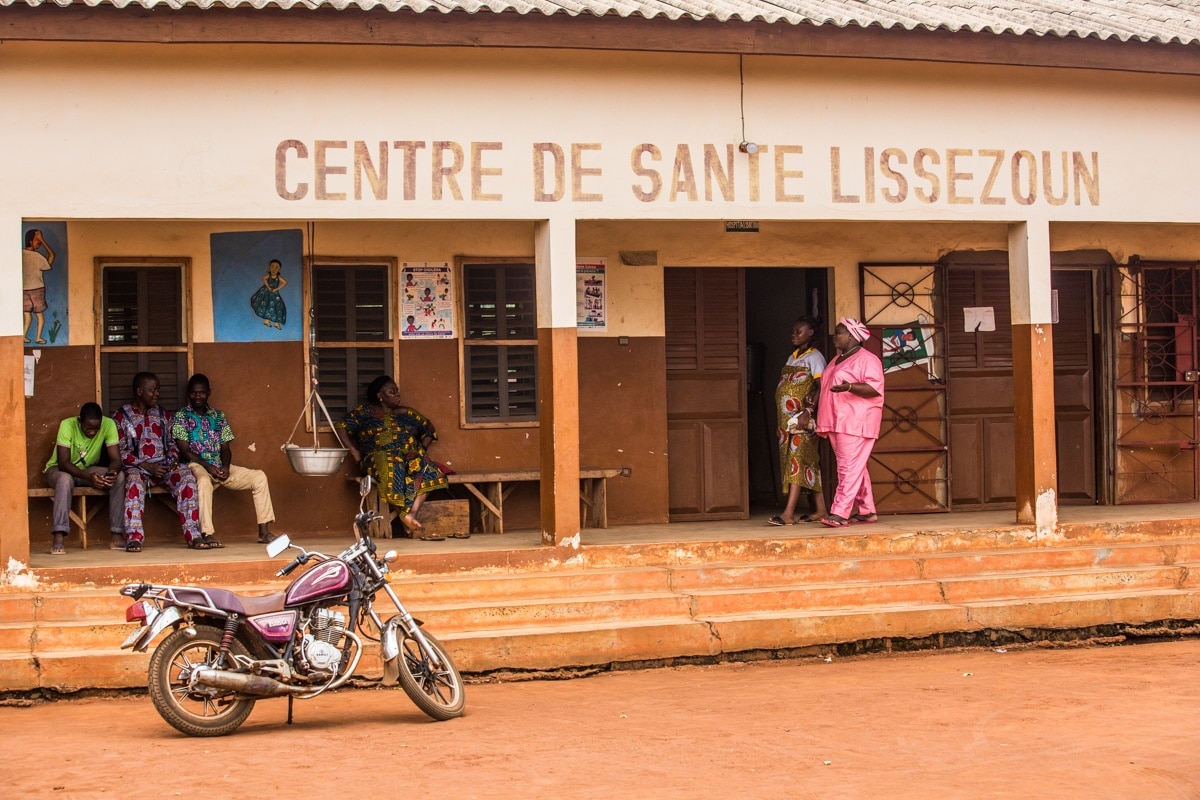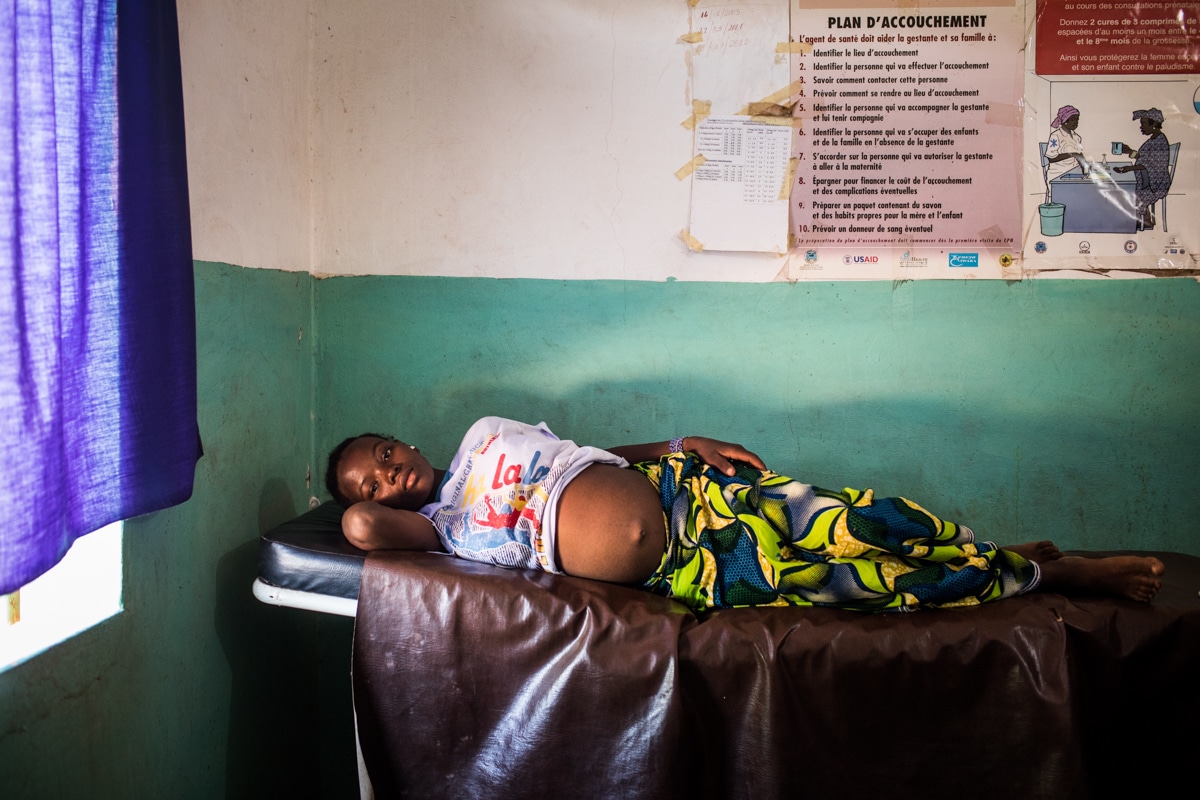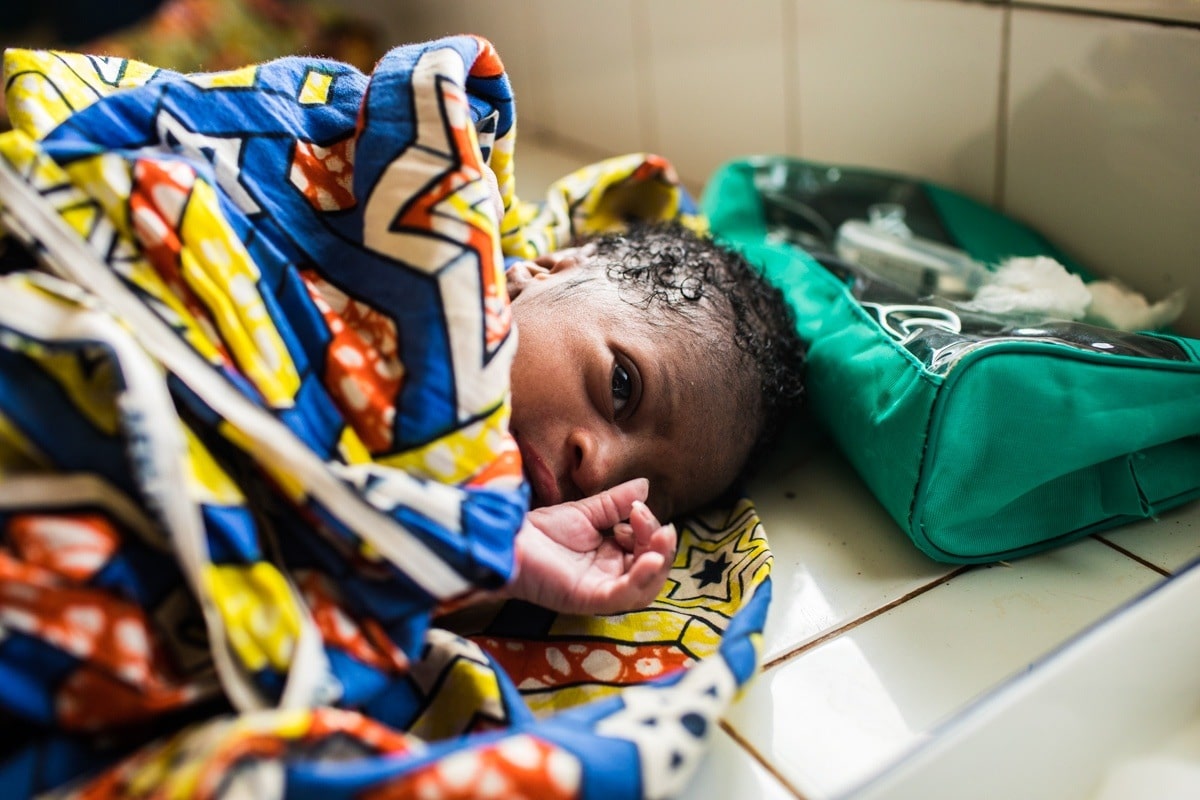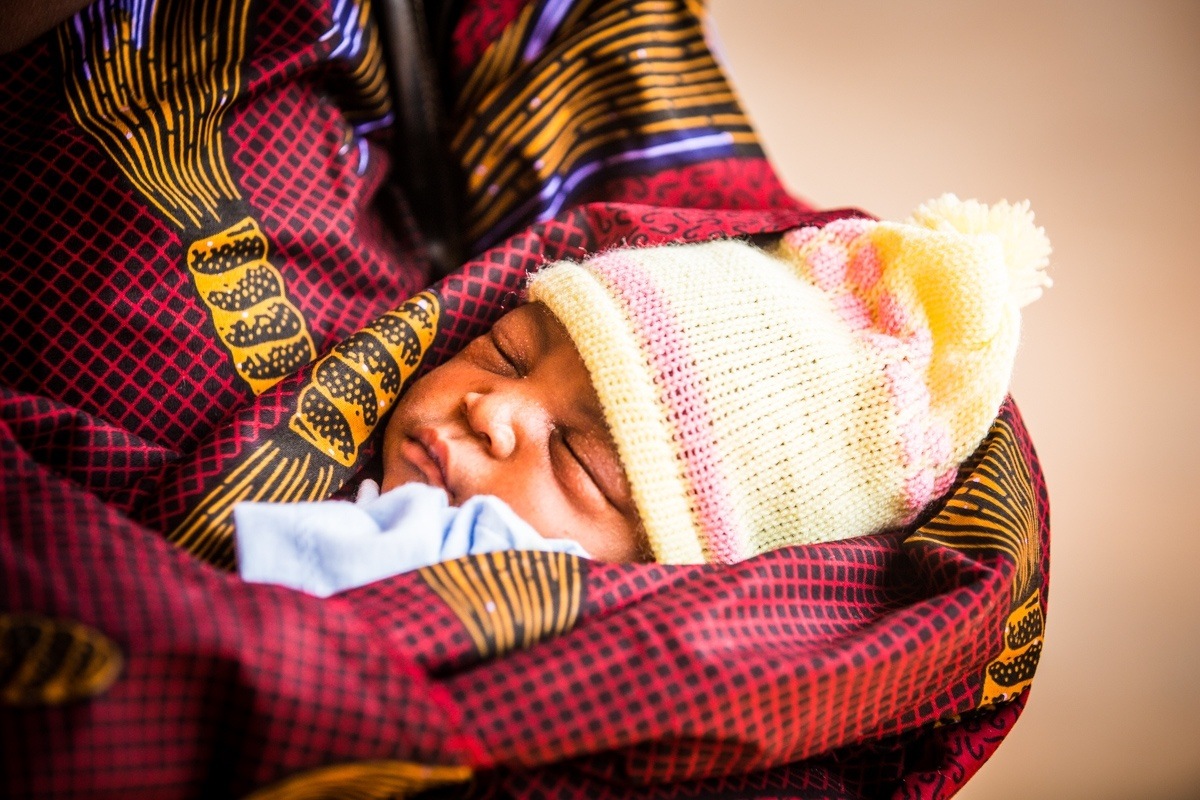IMPROVING THE QUALITY OF HEALTH CARE
Measuring and improving the health system’s ability to respond faced with direct and/or indirect obstetric and neonatal complications (equipment, staff, operational issues) to help reduce maternal and child mortality.

priority issues
Improving the quality of care in health facilities for mothers, newborns and young children is a fundamental challenge in terms of reducing maternal and infant mortality in West and Central Africa. To accomplish this, the French Muskoka Fund is helping:
– support the establishment of a maternity hospital network providing Emergency Obstetric and Newborn Care in accordance with WHO* recommendations.
– institutionalize the Maternal Deaths Surveillance and Response system by increasing the number and quality of audits and including newborns in the monitoring process.
The data collected on Emergency Obstetric and Newborn Care and Maternal Deaths Surveillance and Response show that a minority of care establishments met the required standards when assessed. In addition, implementing recommendations must remain a priority in the pursuit of the Muskoka program.
*Administering of antibiotics, anticonvulsants, uterotonics / Manual removal of the placenta / Assisted vaginal delivery / Removal of retained products / Newborn resuscitation / C-sections
activities
Updating and mapping data on Emergency Obstetric and Newborn Care for all French Muskoka Fund countries.
Inter-agency technical and financial assistance to develop an Emergency Obstetric and Newborn Care network.
Improving the Maternal Deaths Surveillance and Response system and including newborns in the monitoring process.
Continued advocacy and technical assistance to implement recommendations.
Strategies
implemented
DATA COLLECTION AND ANALYSIS
Quality of care
- Definition by WHO and UNICEF of the quality standards and criteria for mothers, newborns and children in health facilities.
- Assessment of the quality of care in seven French-speaking African countries in 2016-2017; more than fifty maternity hospitals visited; recommendations disseminated and corrective actions implemented (better division of human resources, creation of newborn corners, better monitoring and quality control of essential drugs and supply mechanisms, etc.).
Audits of maternal deaths
- Establishment of ad hoc committees.
- Establishment of an Emergency Obstetric and Newborn Care operating network
INSTITUTIONALIZATION OF EmONC MONITORING and Maternal Deaths Surveillance and Response
- Effective integration of Maternal Deaths Surveillance and Response into Integrated Diseases Surveillance and Response.
- Use of health information in the quality of care improvement process at a local and national level.
TRAINING
- Training in essential care, newborn resuscitation and kangaroo mother care.
- Adoption of the Helping Babies Breathe approach, allowing newborn resuscitation care to be incorporated into peripheral facilities.
- Train the trainer skills-based approach using dummies and on-site clinical tutoring.
EQUIPMENT PROVISION
- Airway clearance equipment and a balloon and mask for ventilation.
- Mother and newborn training dummies and accessories for each group of pathologies.
- Appropriately fitted-out areas suitable for caring for newborns in all maternity hospitals in the target regions.
SOME OF OUR ACCOMPLISHMENTS
The 1st Africa Regional Forum on Experience of Care for women, newborns, children and their families in Sub-Saharan Africa was held in October 2019 in Dakar, Senegal with the support of the French Muskoka Fund. The White Ribbon Alliance Respectful Maternity and Newborn Care Charter was officially launched at this event.
Several workshops were held to disseminate WHO guidelines, standards and criteria and offer guidance to countries on developing national quality of care programs. In 2018-2019, WCARO helped improve the quality of care in health centers by increasing the availability of hygiene, water and sanitary services in the Diourbel region of Senegal.
The studies that have been carried out and published include:
- The first multicentric formative research on child health, carried out by Professor Yannick Jaffré and his team of anthropologists from five of the region’s universities (UCAD in Senegal, Mauritania, Togo, Cameroon and Mali).
- Research on the quality/experience of care provided to children in hospital with a focus on pain management, carried out by UMIESS (International Blended Unit for Social Science).
In Niger, the Issaka Gazobi maternity hospital in Niamey was furnished with delivery room equipment (multi-setting Dynamap, portable ultrasound machine, portable labor monitoring device, newborn resuscitation table, pediatric aspirator, oxygen concentrator) in accordance with the recommendations for improving the quality of service provision, following the reproductive, maternal, newborn, child and adolescent health care quality assessment in this facility. 51% of Emergency Obstetric and Newborn Care sites are available with a wide variation between the regions.

Les pays
Contact us
To contact us, complete the form below and we will get back to you as soon as possible.






